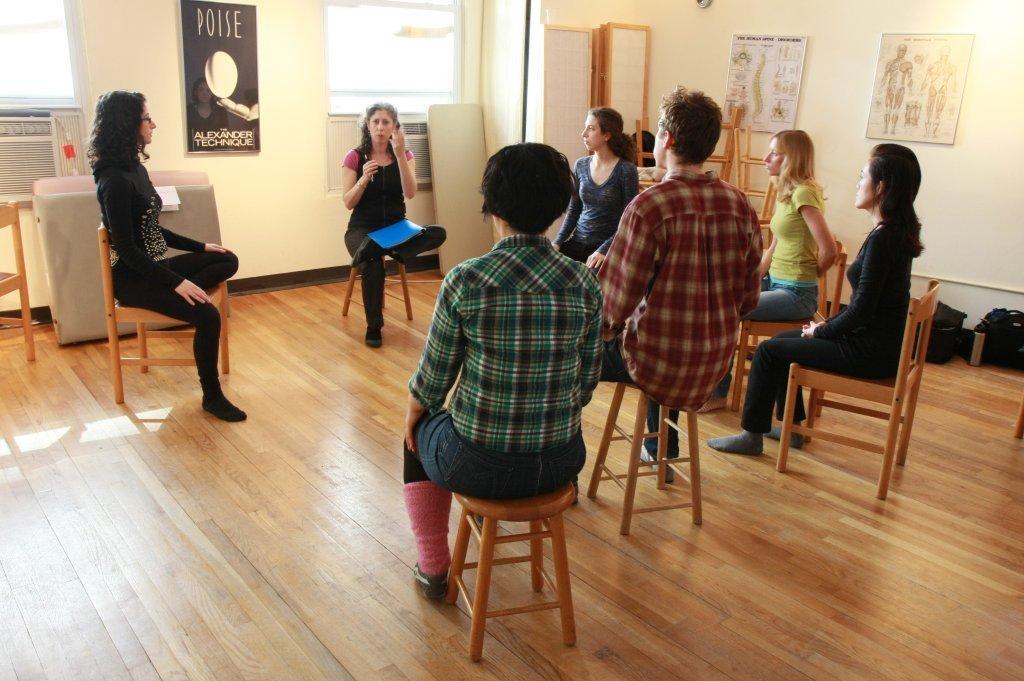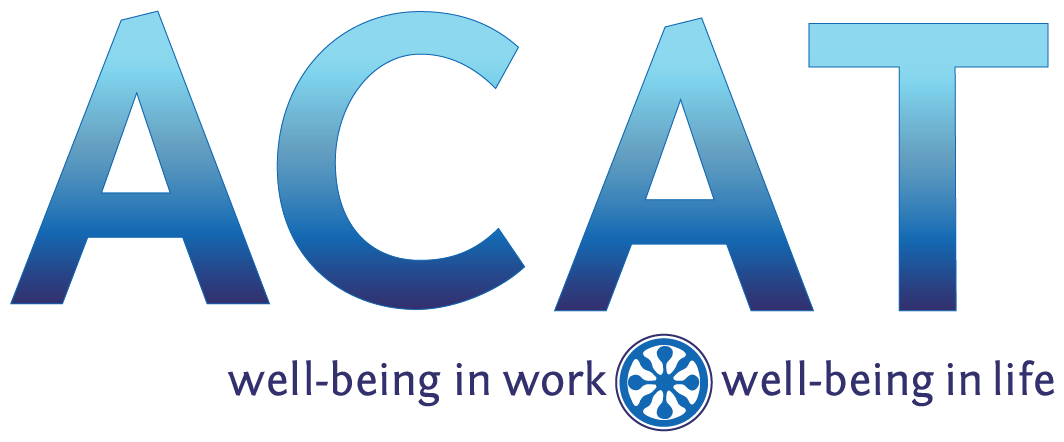 by Brooke Lieb, ACAT Training Director
ACAT’s Teacher Certification Program follows a developmental curriculum, which has been refined over the last 49 years. Our program is designed so that our graduates are prepared, and more importantly, are confident about their ability to teach, by the time they receive their teaching certification.
by Brooke Lieb, ACAT Training Director
ACAT’s Teacher Certification Program follows a developmental curriculum, which has been refined over the last 49 years. Our program is designed so that our graduates are prepared, and more importantly, are confident about their ability to teach, by the time they receive their teaching certification.
Throughout the course, students are being taught hands on skills, sometimes being guided through activities with the assistance of the teacher, and sometimes putting hands on the faculty to receive specific and customized instruction. At the core of effective hands on skills is always our own application of the principles to ourselves. Students come to understand and develop proficiency in applying Alexander Technique principles to all their activities, including the hands on and verbal components of teaching. How we are each applying those skills is at the heart of everything that we do in life, including providing instruction to another. Graduates have typically taught a minimum of 58 sessions under supervision by the time they graduate. I trained at ACAT from 1987 to 1989, and I, too, felt fully prepared and confident about my abilities to work with students by the time I completed my training.
Here's what Karen Krueger, who graduated in December 2010 and who has served on ACAT's board of directors, had to say about the experience:
"Supervised teaching in the third year was a vital bridge from working with my trainers and fellow trainees to teaching on my own.
"Like ACAT's entire curriculum, the supervised teaching class follows a clear sequential structure. Although it was always challenging, it never seemed impossible. Week by week, throughout the year, my skills grew gradually, until I was able to teach an entire lesson to a beginning student. This was perfect training for becoming a teacher in private practice, since at the beginning, most of my students were also beginners.
"In the first term of our third year, our supervisory students had significant previous experience with the Alexander Technique. We then moved on to less experienced students, and we worked with beginners in our last term. As the experience level of our students decreased, the expectations of us as teachers-in-training increased: starting with 10- or 15-minute segments of teaching specific elements of the technique, and building up to teaching 45-minute lessons. Throughout the process, our trainers were in the room with us, helping as needed. At the end of each teaching session, we had the opportunity to discuss what had happened with our classmates and the supervising teacher.
"Throughout the year, I got to try out different approaches to teaching, and to experience many real-world challenges, in a safe and supportive environment, in which both my students and my trainers were there to contribute to my learning. I also took advantage of the opportunity to teach a few private students outside class during my 9th term, and this, too, played an important role in my development as a teacher.
"The Alexander Technique teaches us to set aside undue focus on a goal, and to give attention instead to the "means whereby" -- the way in which we go about the activities involved in reaching the goal. This approach to learning is exemplified in the third-year supervised teaching curriculum at ACAT. And it works: when I graduated from ACAT, I felt fully confident in my ability to teach from day one."
[author] [author_image timthumb='on']http://www.acatnyc.org/main/wp-content/uploads/2014/01/Brooke1web.jpg[/author_image] [author_info]N. BROOKE LIEB, Director of Teacher Certification since 2008, received her certification from ACAT in 1989, joined the faculty in 1992. Brooke has presented to 100s of people at numerous conferences, has taught at C. W. Post College, St. Rose College, Kutztown University, Pace University, The Actors Institute, The National Theatre Conservatory at the Denver Center for the Performing Arts, Dennison University, and Wagner College; and has made presentations for the Hospital for Special Surgery, the Scoliosis Foundation, and the Arthritis Foundation; Mercy College and Touro College, Departments of Physical Therapy; and Northern Westchester Hospital. Brooke maintains a teaching practice in NYC, specializing in working with people dealing with pain, back injuries and scoliosis; and performing artists. www.brookelieb.com[/author_info] [/author]
